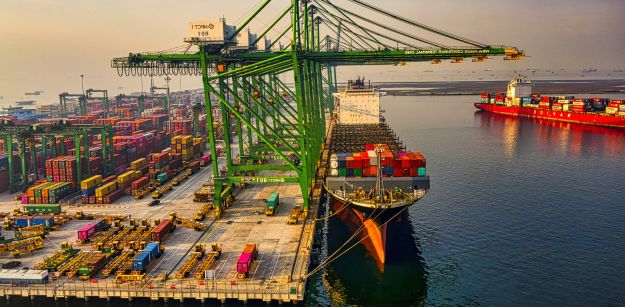Freight management is a crucial aspect of any supply chain, playing a vital role in ensuring goods reach their destination efficiently and cost-effectively. However, the complexities involved in freight management can lead to various pitfalls that hamper operations, increase costs, and impact customer satisfaction. To navigate these challenges successfully, it’s essential to learn from industry experts and adopt best practices. In this blog, we will explore some of the common pitfalls in freight management and the lessons learned from seasoned professionals, with a particular focus on the significance of freight audit and payment services.


Inadequate Planning and Forecasting
One of the primary reasons for freight management pitfalls is inadequate planning and forecasting. Failing to anticipate fluctuations in demand, inventory requirements, or shipment volumes can lead to over or underestimating transportation needs. As a result, businesses may encounter capacity constraints, delayed deliveries, and unexpected surcharges. Industry experts emphasize the importance of data-driven forecasting, collaboration between different departments, and leveraging advanced technologies like AI-powered analytics to improve planning accuracy.
Poor Carrier Selection
Selecting the right carriers is critical to maintaining an efficient freight management process. Choosing carriers based solely on cost can lead to compromised service levels and hidden expenses, such as claims and damages. Instead, freight managers should consider a range of factors, including carriers’ track record, performance metrics, geographic coverage, and compliance with industry regulations. Forming strong partnerships with reliable carriers can lead to long-term benefits and enhanced service quality.
Manual and Inefficient Processes
Many companies still rely on manual processes for freight management, leading to delays, errors, and increased administrative costs. Automating repetitive tasks, such as data entry, shipment tracking, and invoicing, not only saves time but also reduces the risk of human errors. Additionally, integrating different systems and platforms through technology solutions streamlines the entire freight management process and provides real-time visibility into shipments.
Lack of Visibility and Communication
A lack of visibility and communication between stakeholders, including shippers, carriers, and customers, can result in misunderstandings, missed deadlines, and decreased customer satisfaction. Establishing clear communication channels and real-time tracking capabilities ensures that everyone involved remains informed about shipment status, potential delays, and any other critical updates. Embracing cloud-based platforms and mobile apps can significantly improve visibility throughout the supply chain.
Ignoring Freight Audit and Payment Services
Freight audit and payment services play a pivotal role in avoiding financial pitfalls in freight management. The complexity of freight billing, with various surcharges, accessorials, and contract terms, can lead to incorrect payments and invoicing discrepancies. Manual auditing processes may not catch all errors, leaving companies susceptible to overpayment or even potential legal issues. By employing specialized freight audit and payment services, businesses can identify and rectify billing errors, negotiate better rates, and gain valuable insights to optimize transportation spend.
Benefits of Freight Audit and Payment Services:
A. Error Identification and Cost Recovery: Freight audit and payment services use advanced algorithms to scrutinize invoices, identify overcharges, duplicate charges, and billing errors. By rectifying these discrepancies, businesses can recover substantial costs and improve their bottom line.
B. Contract Compliance: Industry experts suggest that freight audit and payment services ensure carriers adhere to agreed-upon contract terms. This prevents carriers from charging inflated rates or applying unauthorized fees.
C. Data Analysis and Reporting: Freight audit and payment services provide comprehensive data analysis and reports, offering valuable insights into transportation spending patterns and performance metrics. This data-driven approach enables informed decision-making and process optimization.
Embracing Technology and Data Analytics
Industry experts emphasize the role of technology and data analytics in overcoming freight management pitfalls. Advanced transportation management systems (TMS) offer robust features, such as route optimization, load consolidation, and carrier performance tracking, which play a crucial role in optimizing freight audit and payment services. By leveraging these tools, businesses can streamline their operations, reduce transportation costs, and improve overall efficiency, especially in the context of freight audit and payment services.
Furthermore, data analytics plays a significant role in identifying trends, patterns, and potential areas for improvement. By analyzing historical shipping data and performance metrics, companies can make data-driven decisions, optimize their supply chain, and negotiate better contracts with carriers. The insights gained from data analytics empower freight managers to proactively address potential challenges and stay ahead of the competition.
Regulatory Compliance and Risk Management
Navigating through the complex web of regulatory requirements is another aspect of freight management that requires careful attention. Non-compliance with rules and regulations can lead to penalties, shipment delays, and damage to a company’s reputation. Industry experts advise staying updated with the latest transportation regulations and investing in compliance management tools to ensure adherence.
Risk management should be an integral part of the freight management strategy. Unexpected events such as natural disasters, labor strikes, or geopolitical disruptions can impact the supply chain. By conducting risk assessments and establishing contingency plans, businesses can mitigate potential risks and maintain continuity even during challenging times.
Sustainability and Environmental Responsibility
With increasing awareness of environmental issues, sustainability has become a significant consideration in freight management. Customers are increasingly demanding eco-friendly practices and responsible supply chain operations. To address this, industry experts advocate adopting sustainable transportation practices, such as using alternative fuels, optimizing delivery routes, and collaborating with environmentally conscious carriers.
Freight managers can integrate sustainability goals into their carrier selection criteria, favoring carriers with environmentally friendly practices. By embracing sustainable freight management practices, businesses not only contribute positively to the environment but also enhance their brand reputation and appeal to eco-conscious consumers.
Continuous Evaluation and Improvement
Freight management is an ongoing process that requires continuous evaluation and improvement. Industry experts advise conducting regular performance reviews, benchmarking against industry standards, and seeking feedback from key stakeholders, including customers and carriers. These evaluations provide valuable insights into strengths, weaknesses, and opportunities for enhancement.
By adopting a continuous improvement mindset, businesses can identify areas that need attention, optimize processes, and enhance overall performance. Moreover, it fosters a culture of innovation and adaptability, allowing companies to stay agile in the face of changing market dynamics.
Conclusion
Freight management is a multifaceted process that demands meticulous planning, efficient execution, and continuous improvement. By learning from industry experts and avoiding common pitfalls, businesses can navigate the complexities of supply chain logistics successfully.
Key lessons include the importance of data-driven forecasting, carrier selection based on more than just cost, adoption of technology and data analytics, embracing specialized freight audit and payment services, and a focus on regulatory compliance and sustainability. Additionally, maintaining visibility and communication, risk management, and fostering collaborative partnerships are crucial components of a robust freight management strategy.
As businesses strive to optimize their freight management processes, it’s essential to remember that there is no one-size-fits-all solution. Each company’s unique requirements and challenges call for tailored approaches. By prioritizing continuous learning, innovation, and adaptability, businesses can stay ahead of the curve in an ever-changing logistics landscape, enhancing customer satisfaction and driving sustainable growth in the long run.



